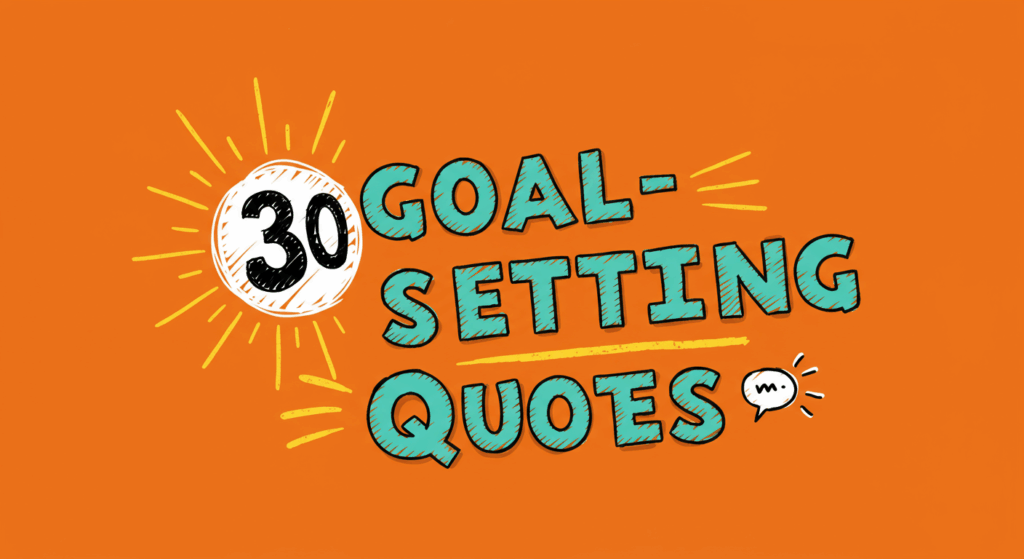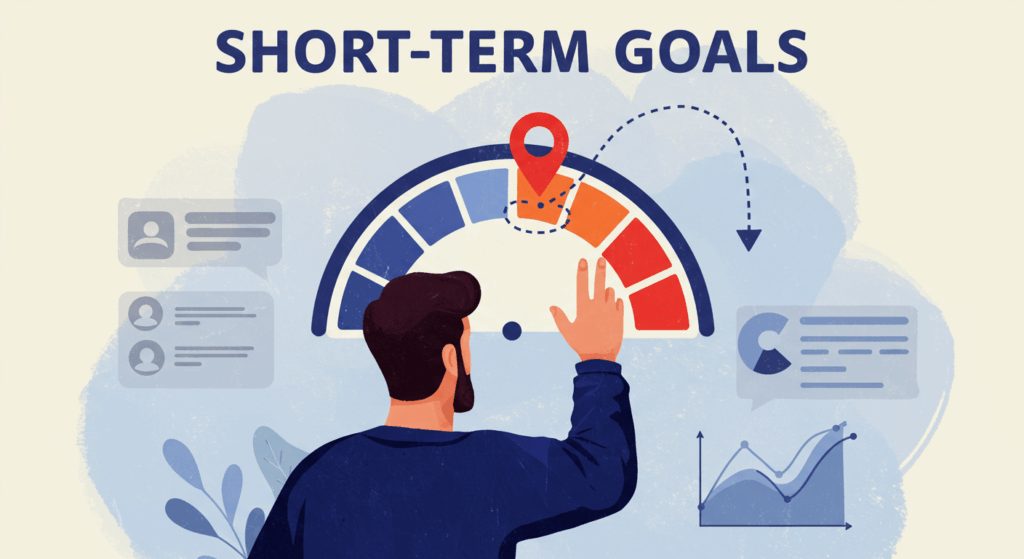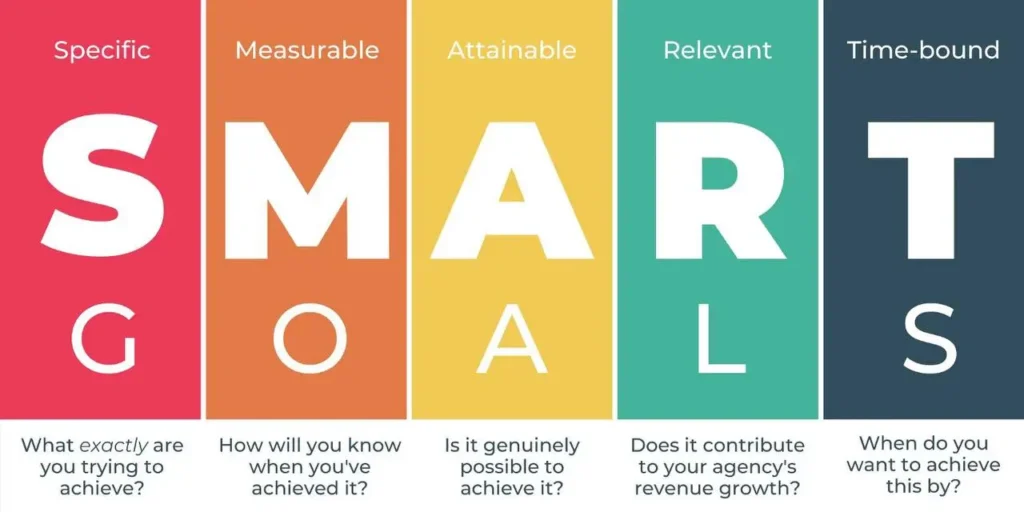So, here’s the thing: everyone keeps telling us to “set goals.” Your boss, your college professor, random TikTok productivity coaches who wake up at 4:30 AM (like… how?). Goals are everywhere. But if you’re like me, you’ve probably sat there wondering, “Okay but what’s actually the difference between short-term goals and long-term goals? And do I really need both?”
Spoiler: yeah, you kinda do. But don’t worry, it’s not as scary as it sounds. Let’s break it down together in a way that doesn’t feel like reading a boring textbook.
First off… what even is a goal?
At the simplest level, a goal is just something you’re aiming for. It’s like setting a pin on Google Maps—you tell yourself where you wanna go, and then your life kinda navigates in that direction. Without a goal, honestly, we’re just wandering around. Which, ngl, sometimes sounds fun (road trip energy), but it’s not the best for actually building a career, paying off debt, or, idk, figuring out where your life is headed.
Short-Term Goals Meaning (aka the quick wins)
Think of short-term goals as the mini-levels in a video game. You beat them in days, weeks, or maybe a few months, and they keep you motivated to continue. They’re not huge, life-altering things—more like stepping stones that get you to the bigger stuff.
Examples? Saving $200 this month, finishing that online course you’ve been procrastinating on, getting in three workouts a week, or finally cleaning out the “junk drawer” (we all have one, don’t lie).
The beauty of short-term goals is that they give you instant-ish gratification. And let’s be real: most of us are dopamine-driven creatures scrolling on TikTok for that quick hit of serotonin. Short-term goals give us that same little “yes, I did it!” moment—but in real life.
Long-Term Goals Meaning (aka the big picture stuff)
Long-term goals are the bigger visions, the things that take years to build. They’re like planting a tree—you don’t get shade right away, but down the road, you’ll be chilling under it with an iced coffee.
Examples: buying a house, starting your own business, retiring early, writing a book, or maybe running a marathon (and not just the Netflix marathon kind). These goals require patience, consistency, and honestly, dealing with a lot of setbacks.
The hardest part? You don’t get the quick payoff. Like, you can’t check “owning a home” off your list after a week. That’s why short-term goals are so important—they’re the breadcrumbs that keep you moving toward the long-term dream.
Okay, so what’s the actual difference?
Here’s the simplest way I like to think of it:
- Short-term goals = the “right now” things. Days, weeks, months. You can check them off relatively quickly.
- Long-term goals = the “future you” dreams. Years or even decades. They require you to zoom out and think big picture.
The difference is really just about time, scale, and how much patience it takes to get there.
Imagine you’re playing The Sims. A short-term goal might be “get promoted to level 2 in your career.” A long-term goal would be “max out your entire career track, buy a mansion, and have a legacy family with 10 generations.” Same game, just different time frames.
Why you actually need both (sorry, no skipping)
Some people swear by short-term goals because they love ticking boxes and feeling productive. Others are more into the big-picture dreaming, like creating vision boards and manifesting their “future self.”
But here’s the truth: you can’t just have one or the other. Without short-term goals, your long-term dreams stay just that—dreams. And without long-term goals, your short-term wins don’t add up to anything meaningful. It’s like building LEGO without knowing what you’re making. Sure, you’ve got a pile of colorful blocks, but… what’s the endgame?
Examples to make this less abstract
Let’s do some quick scenarios:
- Fitness:
- Short-term goal: Work out 3x this week.
- Long-term goal: Run a half marathon in a year.
- Career:
- Short-term goal: Finish updating your resume.
- Long-term goal: Land a management position in 5 years.
- Money:
- Short-term goal: Save $300 this month.
- Long-term goal: Pay off student loans or build a $50k investment portfolio.
- Personal life:
- Short-term goal: Go on two friend dates this month (yes, scheduling friend hangouts counts).
- Long-term goal: Build a stable, supportive social circle you can rely on.
See how the short-term stuff feeds into the long-term vision? That’s the whole point.
The trap of only living short-term
Here’s where things get tricky: if you ONLY focus on short-term goals, you risk burning yourself out or going in circles. You might hit a lot of mini-wins, but if they’re not connected to a bigger plan, you’ll wake up one day like, “Wait… what am I even doing?”
It’s like binge-watching an entire season on Netflix, feeling accomplished, but then realizing you haven’t actually made progress on the stuff that really matters to you.
The trap of only thinking long-term
On the flip side, if you ONLY set long-term goals, you’ll feel like nothing ever gets done. You’re just staring at this big intimidating dream with no idea how to start. It’s overwhelming, and honestly, kinda paralyzing.
It’s like saying, “I want to write a novel,” and then never putting a single sentence on the page because the task feels so huge. That’s why you need those short-term check-ins. They make the impossible feel… possible.
Short-Term Goals vs. Long-Term Goals at Work
Work is one of the best places to see this in action. Short-term goals at work might be finishing a project by Friday, improving your presentation skills, or networking with one new person this month. Long-term goals at work could be building your leadership style, getting promoted, or maybe even switching industries entirely.
And this is where those search-y words come in handy—if you’ve ever Googled short term goals, short term goals examples, short term goals meaning, what a short term goal, short term goals career, short term goals at work, short term goals for work examples, short term goals work, you’ve probably noticed everyone saying the same thing: the short-term stuff builds the foundation for the long-term vision. Honestly, that’s it.
How to actually balance both (without losing your mind)
Alright, so we know we need both. But how do you balance them when life already feels like a constant juggle?
Here’s what I’ve found works (most days, at least):
- Start with your long-term vision.
Ask yourself: “What do I want in 5 or 10 years?” It doesn’t have to be perfect. Just… something. - Break it down into chunks.
From that vision, carve out smaller, doable goals that move you in the right direction. - Keep it flexible.
Life happens. Jobs change, relationships shift, you discover new passions. It’s totally fine to tweak your goals as you go. - Celebrate the little wins.
Seriously, reward yourself for the short-term victories. Order the fancy latte. Watch the extra episode. You earned it.
A personal confession (because why not)
I’ll be real with you: I used to hate goal-setting. It felt rigid, like I was putting my life into a spreadsheet. But the times I’ve actually sat down and made both short-term and long-term goals? I’ve felt way more grounded. Even when things went sideways, at least I had some kind of direction.
It’s like walking through a foggy forest—if you can’t see the entire path, at least you can see the next few steps. And that’s enough to keep you moving.
Final thoughts: your goals, your pace
At the end of the day, the whole short-term vs. long-term debate isn’t about picking one. It’s about making them work together. Short-term goals give you momentum. Long-term goals give you meaning.
So maybe tonight, instead of doomscrolling for an hour, grab a notebook and jot down one short-term goal you could knock out this week, and one long-term dream that makes you excited. Start there.
And hey—don’t stress if it’s not perfect. Goals aren’t about being flawless. They’re about giving yourself a direction and the permission to chase after something better.
You got this.
👉 So tell me, what’s one short-term goal you can start this week that brings you closer to your bigger dream? Go ahead, write it down. Future-you will thank you.









